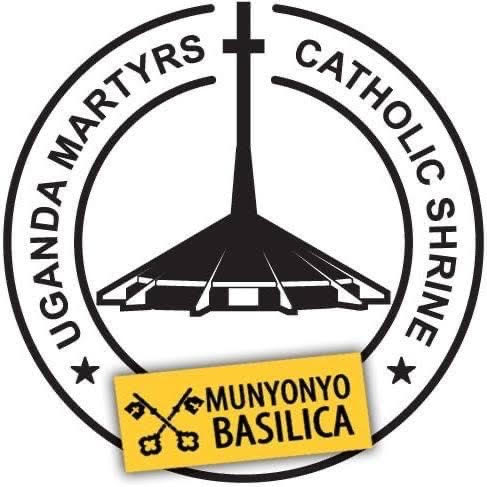James’ parentage and baptism
The suffering and death of St. James Buuzaabalyawo

James Buuzabalyawo, one of Andrew Kaggwa’s converts, was the son of the royal bark-cloth maker, Sebikejje, of the Colubus-Monkey (Ngeye) Clan. Buuzabalyawo was the third of eight children and was born at Tabazimu in Mawokota County between 1856 and 1861. His eldest sister, Tagusenda, had been presented by their father to Kabaka Muteesa who had one child by her, the Princess Namukaabya. Buuzabalyawo was brought up in the household of his royal niece and from there naturally entered the Kabaka’s service, first as a page and later as a bandsman and guard.
As a bandsman he came under the command of Andrew Kaggwa who taught him to play the big drum and also instructed him in the Catholic faith. He became Kaggwa’s chief assistant, not only as bandsman but also as teacher of the cate¬chism. In this capacity he was often sent by Kaggwa, who had con¬siderable influence over the young Prince Mwanga, to put the latter through his prayers and catechism. When after the accession of Mwanga, Kaggwa became Bandmaster-General, he took Buuzaaba¬lyawo with him to Kigoowa but, though normally resident there, Buuzaabalyawo was frequently at Court, either on duty or paying visits to the Kabaka and his former companions amongst the pages. He was not baptized until the night after Joseph Mukasa’s death on 15 November 1885. Pere Giraud baptized him.
The suffering and death of St. James Buuzaabalyawo
At the hut of Andrew Kaggwa, Mwanga found only James Buuzabalyawo the bandsman, Andrew’s second-in-command. There was no need to ask whether James was a Christian. He had often, while Mwanga was still a Prince, attempted to put him through his cate¬chism. James knelt before the royal visitor who merely pushed him over with his foot and ordered his arrest. The young man was promptly stripped of his clothing and taken off to prison.
It may have been Lutaaya’s (one of the executioners) request for the person of Bruno Serun¬kuuma, who was also in prison that reminded Mwanga of the man he had committed to prison the previous evening. He now sent for the prisoner. Buuzabalyawo, who seems to have been something of a wag, arrived at the Kabaka’s house at the double, as if he were expecting to receive some great favour, although he well knew what was in store for him. The story of this interview was recounted by Sabali, one of the executioners who was present.
‘Are you the chief of the Christians of Kigoowa?’ asked the Kabaka.
Mwanga knew very well that Andrew Kaggwa and none other was the leader of the Kigoowa Christians but, having got over the first flush of his rage, he was hoping to spare that stalwart friend and companion and ignore his religion, as he did that of Matthew Kisuule.
‘I am a Christian,’ replied Buuzabalyawo, ‘but the title of chief, which you graciously bestow, does not belong to me.’
Struck by his boldness and assurance, Mwanga turned to those about him. ‘This young man gives himself airs,’ he said. ‘To look at him, one would take him for the Mukwenda!’ Mukwenda was the title of the county chief of Ssingo, and a recent holder of that post had been a notorious popinjay.
Buuzabalyawo deliberately affected to misunderstand the Kabaka’s remark. He prostrated himself before the Kabaka and, placing his hands palm to palm, raised them and brought them down again with a sort of chopping action, diagonally, first from left to right and then from right to left-the traditional Kiganda way of show¬ing gratitude,–exclaiming at the same time:
‘Thank you, Sire! Thank you so much for the great chieftainship that you are bestowing upon me.’
Mwanga pretended not to notice this piece of cheerful impertin¬ence, and said:
‘This is the fellow that actually attempted to make a Christian of me. Take him away and kill him at once. I want to commence with him.’
‘Good-bye, then,’ said James, not a whit dismayed. ‘I’m off to Paradise to intercede with God for you.’ His words were greeted with laughter by the pagans present, who remarked, ‘These Christians must be mad, to talk like that.’ The martyr was tied up by the executioners, and led away through the court of the audience hall, where Lourdel was still waiting.
‘James passed close to me,’ wrote the priest. ‘His hands were tied together, and he had a rope round his neck. I lifted my hand to give him a last absolution and he answered by lifting his, bound as they were, to Heaven. He smiled and seemed to say to me, “Mapeera, why be sad? What I suffer now is little compared with the eternal happiness which you have taught me to look forward to”.’ James Buuzabalyawo was not executed at once, but taken to join the other Christians awaiting execution.
After reaching Namugongo and shortly before Christians were put onto the pyre, Mukaajanga gave each of them a small gourdful of plantain¬-wine (Mwenge), it being the custom of the Baganda to give plantain wine to everyone who is about to be put to death. James Buuzabalyawo, (probably in memory of his Master’s refusal on Cal¬vary) refused to drink.
Looking at other Christians who had been separated from the group to be burnt, James Buuzabalyawo seemed to be especially concerned about Simeon Sebuta. ‘I know well,’ he said, ‘that the Kabaka is not going to have you burnt. You are to remain alone amidst the temptations and evils of the Court. I beseech you, Sebuta, never to think of denying your faith. See how happy we are to die for it. We are going to Heaven, my lad.’
In the following few minutes, Buuzaabalyawo and fellow Christians were tied alive in reeds and put onto the pyre, which was lit from the bottom and Christians burnt to ashes.
